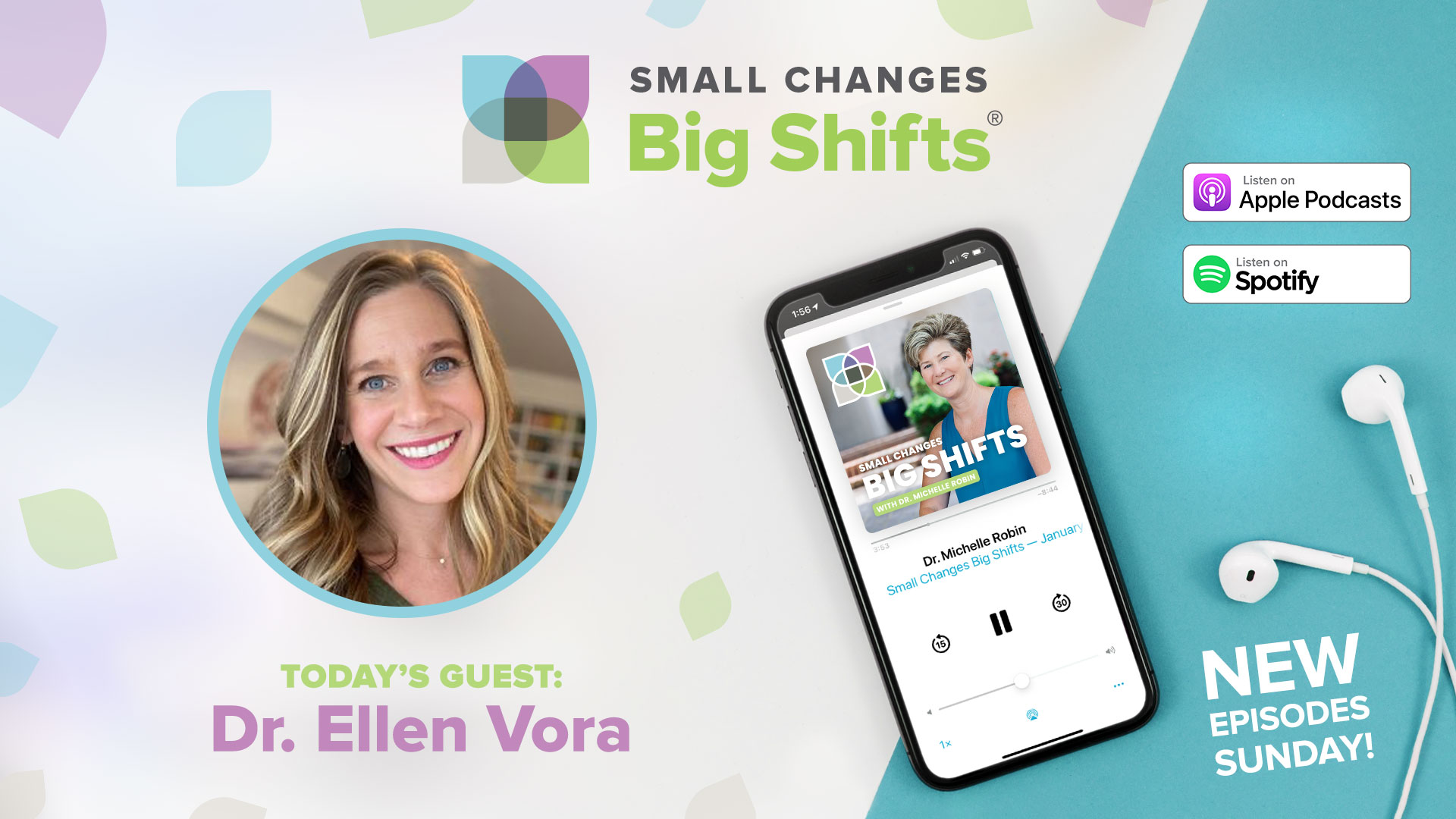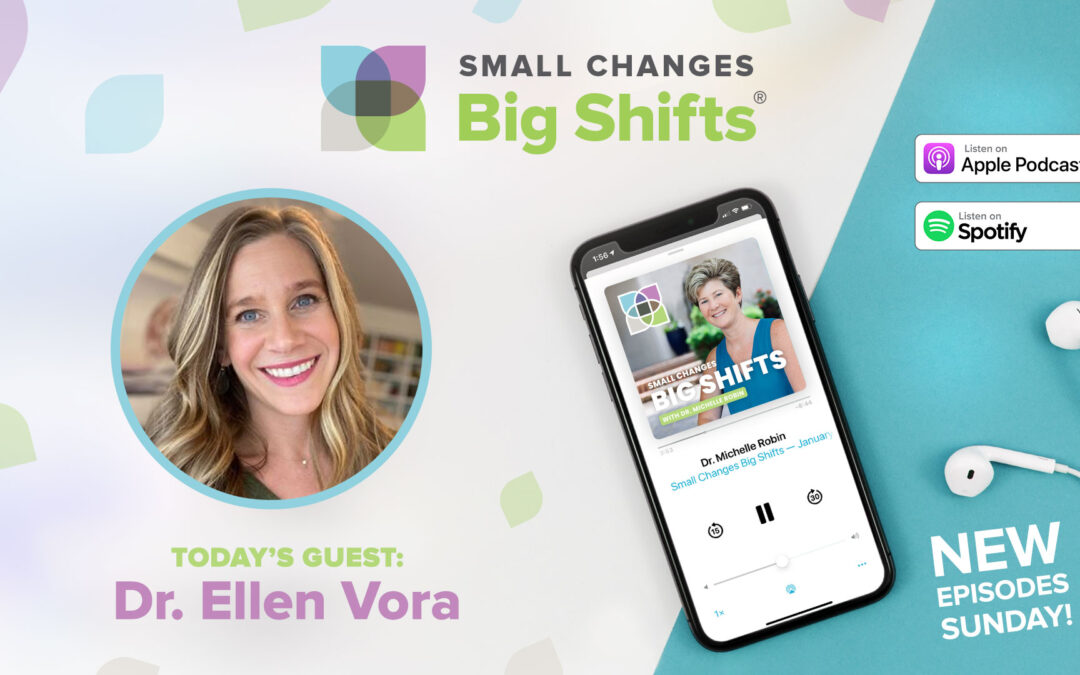Guest: Dr. Ellen Vora | Season 11, Ep. 483
“Life is really simple but we insist on making it complicated.” – Confucius
In this episode of the Small Changes Big Shifts podcast, we are joined by board-certified psychiatrist, acupuncturist and yoga teacher, Dr. Ellen Vora who has also authored the chapter on Complementary and Alternative Medicine in Psychiatry in the textbook Mount Sinai Expert Guides: Psychiatry
Dr. Vora takes a functional medicine approach to mental health, considering the whole person and addressing the problem at the root, rather than reflexively prescribing medication to suppress symptoms.

She also takes the whole person into consideration, focusing on everything from physical health, sleep, nutrition, digestion, thought patterns, relationships and community to our connection with nature and creativity, and the ways we find meaning in life.
Ash she sits down with Dr. Michelle, we learn what drew Dr. Vora to learn more about holistic approach and other trainings to heal the human body such as Chinese medicine, movement, nutrition, and acupuncture.
Listen and discover:
- The fact that most commonly medications and antidepressants such as for anxiety, depression, and OCD don’t have great solid evidence that they actually work.
- Her advice on trying out a couple of holistic approaches before taking prescribed medicine.
- Our current mental health epidemic throughout the world with the number of cases increasing
- The difference between an episodic depression and chronic depression
- Why feeling out alignment with your work and daily life is actually a good call to action for you to change something.
- The vital importance of building a community in a comfortable environment with lower standards and avoiding isolation.
Specifically for expecting and young mothers, Dr. Vora explains:
- How to get your body ready for and after a baby with a good diet or nutritious, whole foods.
- Combating postpartum depression by focusing first on nutrition.
- Her top parenting tip: None of us is perfect, just show up the best you can for them as an authentic human.
“In fact, it’s not an exaggeration to say that the history of science has been the history of most people being wrong about most things most of the time. The willingness to challenge even our most deeply-held assumptions and the humility to admit when we’ve been wrong are essential to good science.” – Chris Kresser
Tune in and find out what small changes you can make today for big shifts tomorrow with your wellbeing, community, and family.



